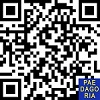DIGITAL TRANSFORMATION IN PESANTREN: IMPACTS AND CHALLENGES IN ISLAMIC EDUCATION
Abstract
Keywords
Full Text:
PDFReferences
Adedoyin, O. B., & Soykan, E. (2020). Covid-19 Pandemic and Online Learning: The Challenges and Opportunities. Interactive Learning Environments, 31(2), 863–875. https://doi.org/10.1080/10494820.2020.1813180
Alwi, B. M. (2016). Pondok Pesantren: Ciri Khas, Perkembangan, Dan Sistem Pendidikannya. Lentera Pendidikan Jurnal Ilmu Tarbiyah Dan Keguruan, 16(2), 205–219. https://doi.org/10.24252/lp.2013v16n2a8
Anggara, S. (2023). Exploring the Effectiveness of Merdeka Belajar Kampus Merdeka Policy in Indonesian Higher Education Institutions: An in-Depth Case Study Analysis. Al-Ishlah Jurnal Pendidikan, 15(2), 1563–1570. https://doi.org/10.35445/alishlah.v15i2.3885
Aprilisa, E., & Kartowagiran, B. (2022). Teachers in Rural Area of Java Utilize Free Digital Platforms During COVID-19 Pandemic. https://doi.org/10.2991/assehr.k.220129.029
Aunul, S., & Handoko, D. (2022). Digital Religion: How Digital Immigrants Access Religious Content During Pandemic. Islamic Communication Journal, 7(1), 77–88. https://doi.org/10.21580/icj.2022.7.1.10088
Baxter, P., & Jack, S. M. (2015). Qualitative Case Study Methodology: Study Design and Implementation for Novice Researchers. The Qualitative Report. https://doi.org/10.46743/2160-3715/2008.1573
Darajat, D. M., Rosyidin, I., & Fahrudin, D. (2022). Pesantren and Madrasa-Based Digital Literacy Practices: The Case of the Darunnajah Islamic Boarding School, Jakarta. Islamic Communication Journal, 7(2), 257–272. https://doi.org/10.21580/icj.2022.7.2.13619
Dečman, N., Rep, A., & Titgemeyer, M. (2022). Who Is More Eager to Use Gamification in Economic Disciplines? Comparison of Students and Educators. Business Systems Research Journal, 13(2), 96–116. https://doi.org/10.2478/bsrj-2022-0017
Douthit, N. T., Kiv, S., Dwolatzky, T., & Biswas, S. (2015). Exposing Some Important Barriers to Health Care Access in the Rural USA. Public Health, 129(6), 611–620. https://doi.org/10.1016/j.puhe.2015.04.001
Fadli, M. R., & Dwiningrum, S. I. A. (2021). PESANTREN’S DIGITAL LITERACY: An Effort to Realize the Advancement of Pesantren Education. Ulul Albab Jurnal Studi Islam, 22(2), 338–359. https://doi.org/10.18860/ua.v22i2.14221
Fandir, A. (2024). Transformation of Islamic Education: Implementation of Technological Innovation in Education Management. Jurnal Ilmiah Mandala Education, 10(1), 187. https://doi.org/10.58258/jime.v10i1.6625
Hidayatulloh, T., Saputra, H., & Saumantri, T. (2023). Peran Pesantren Tarekat Roudhoh Al-Hikam Dalam Mengembangkan Tradisi Intelektual Islam Dan Moderasi Beragama Di Indonesia. Dialog, 46(1), 38–52. https://doi.org/10.47655/dialog.v46i1.702
Ilmani, Y. R. (2023). Transforming Education to Unlock Lifelong Opportunity and Success Mindset Through Women’s Leadership. Managere Indonesian Journal of Educational Management, 5(1), 58–70. https://doi.org/10.52627/managere.v5i1.286
Irvine, R. D. G. (2021). Experts in Self-Isolation? Monastic Outreach During Lockdown. Religions, 12(10), 814. https://doi.org/10.3390/rel12100814
Kaur, S., Khan, I. D., Jindal, S., Prajapati, S. B., Makkar, A., & Rajmohan, K. (2019). Infrastructure, Resources, Services Evaluation and Gap Analysis of Integrated Maternal and Child Development Services in India. International Journal of Medicine and Medical Research, 4(2), 67–71. https://doi.org/10.11603/ijmmr.2413-6077.2018.2.9286
Kholili, Y. (2021). Challenges for Pesantren in the Revolution Era of Society 5.0. Amca Journal of Religion and Society, 1(1), 8–12. https://doi.org/10.51773/ajrs.v1i1.33
Krakowiak-Bal, A., Ziemiańczyk, U., & Woźniak, A. (2017). Building Entrepreneurial Capacity in Rural Areas. International Journal of Entrepreneurial Behaviour & Research, 23(6), 903–918. https://doi.org/10.1108/ijebr-07-2017-0223
Kuswana, D. (2023). Religious Authority in the New Media Era: Sabilul Huda Islamic Boarding School Da’wah on Social Media. Ilmu Dakwah Academic Journal for Homiletic Studies, 17(2), 415–444. https://doi.org/10.15575/idajhs.v17i2.26480
Lundeto, A., Talibo, I., & Nento, S. (2021). Challenges and Learning Strategies of Islamic Education in Islamic Boarding Schools in the Industrial Revolution Era 4.0. Al-Ishlah Jurnal Pendidikan, 13(3), 2231–2240. https://doi.org/10.35445/alishlah.v13i3.1153
Mainuddin. (2024). Sustainable Pesantren: Institutional Reform in Islamic Education. Jurnal Alwatzikhoebillah Kajian Islam Pendidikan Ekonomi Humaniora, 10(2), 427–438. https://doi.org/10.37567/alwatzikhoebillah.v10i2.2631
Muhith, Abd. (2023). Challenges of Islamic Boarding School Organizational Culture in the Millennial Generation and the Digital Era 4.0. Nazhruna Jurnal Pendidikan Islam, 6(3), 457–474. https://doi.org/10.31538/nzh.v6i3.4231
Muiz, A. (2023). Pesantren in the Digital Era: Looking for the Chances and the Challenges. At-Tarbawi Jurnal Kajian Kependidikan Islam, 8(1), 31–46. https://doi.org/10.22515/attarbawi.v8i1.6246
Mutmainah, S. (2024). Building Digital Skills and Introducing AI for Santri Through a Training Program at the as-Sunniyah Islamic Boarding School in Kencong Jember. International Journal of Community Service Learning, 8(1), 115–121. https://doi.org/10.23887/ijcsl.v8i1.76313
Prabowo, M. S. (2022). Digital Literacy and Development of Santripreneur Asset Quality Through the Leadership Role of Kyai: A Case Study of Islamic Boarding Schools. Journal of Private and Commercial Law, 6(2), 157–182. https://doi.org/10.15294/jpcl.v6i2.38837
Rahman, Moh. R., & Asrohah, H. (2022). Virtual Pesantren: Pesantren Sustainability in Facing the Challenges of 4.0 Era. Jurnal Pendidikan Islam Indonesia, 6(2), 63–73. https://doi.org/10.35316/jpii.v6i2.403
Rouf, A. (2024). Entrepreneurship in Islamic Education Institutions: Pesantren Strategy in Responding to the Industrial Revolution 4.0. Tafkir Interdisciplinary Journal of Islamic Education, 5(2), 250–265. https://doi.org/10.31538/tijie.v5i2.1115
Sá, M. J., Santos, A. I., Serpa, S., & Ferreira, C. M. (2021). Digitainability—Digital Competences Post-Covid-19 for a Sustainable Society. Sustainability, 13(17), 9564. https://doi.org/10.3390/su13179564
Shofiyyah, N. A., Ali, H., & Sastraatmadja, N. (2019). Model Pondok Pesantren Di Era Milenial. Belajea Jurnal Pendidikan Islam, 4(1), 1. https://doi.org/10.29240/belajea.v4i1.585
Supriyono, S. (2022). Pesantren, the COVID-19 Pandemic and Digital Transformation: A Global Development Perspective. Muslim Education Review, 1(1), 37–58. https://doi.org/10.56529/mer.v1i1.10
Syani, P. A., Rahiem, M. D. H., Subchi, I., Suryani, R., Kurniawan, F., & Gunawan, G. (2020). COVID-19: Accelerating Digital Transformation for University’s Research Administration. https://doi.org/10.1109/citsm50537.2020.9268913
Utari, T. S. G. (2024). Student Management in the Special Service Education Program. Al-Tanzim Jurnal Manajemen Pendidikan Islam, 8(2), 392–407. https://doi.org/10.33650/al-tanzim.v8i2.8272
Wahyudi, S. (2023). Online Learning Talaqqi Method in Pesantren of Indonesia. Al-Ishlah Jurnal Pendidikan, 15(3), 2996–3004. https://doi.org/10.35445/alishlah.v15i3.2596
Xu, W. (2016). Teaching Reform for an 8051 Microcontroller Course Based on E-Learning. https://doi.org/10.2991/iceemt-16.2016.13
Yuningsih, Y. R. (2023). Pesantren and the Kitab Kuning: Pesantren Dynamics and Its Influence on the Kitab Kuning Traditions in Sukabumi. Buletin Al-Turas, 29(2), 199–212. https://doi.org/10.15408/bat.v29i2.30897
Zafi, A. A., Jamaluddin, D., Partono, P., Fuadi, S. I., & Chamadi, M. R. (2021). The Existence of Pesantren Based Technology: Digitalization of Learning in Pondok Pesantren Darul Ulum Kudus. Jurnal Pendidikan Agama Islam, 18(2), 493–510. https://doi.org/10.14421/jpai.2021.182-15
DOI: https://doi.org/10.31764/paedagoria.v16i3.29692
Refbacks
- There are currently no refbacks.
Copyright (c) 2025 Zainal Fanani, Ahmad Nabilul Maram

This work is licensed under a Creative Commons Attribution-ShareAlike 4.0 International License.
Paedagoria : Jurnal Kajian, Penelitian dan Pengembangan Kependidikan
Fakultas Keguruan & Ilmu Pendidikan | Universitas Muhammadiyah Mataram.
_______________________________________________
 | Paedagoria : Jurnal Kajian, Penelitian dan Pengembangan Kependidikan |
______________________________________________
CURRENT INDEXING:
EDITORIAL OFFICE:


















